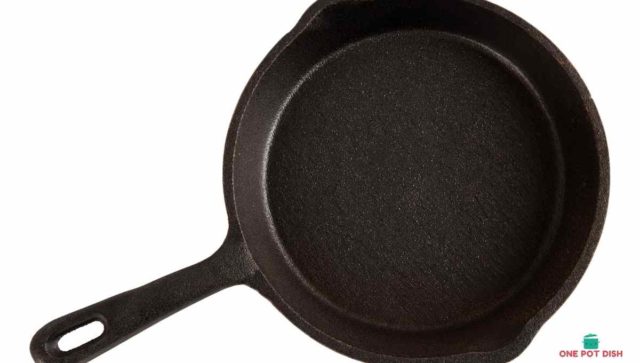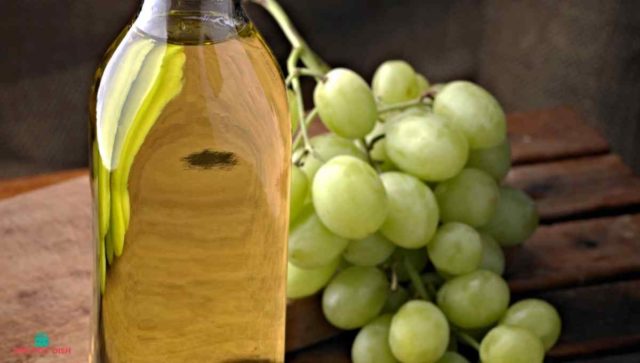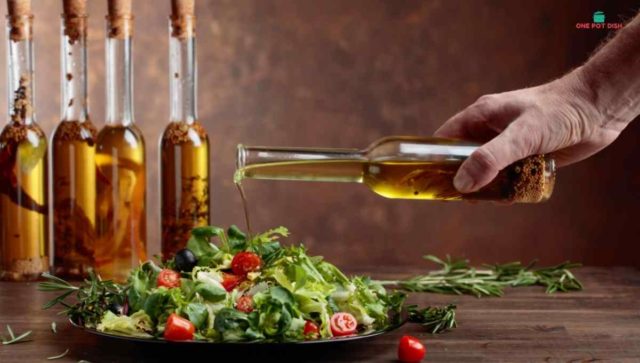Best Oil for Cast Iron Seasoning Method
What does Seasoning on Cast Iron mean?
Seasoning is using oil that has a high flashpoint to firstly fill the microscopic holes in the iron surface (sometimes referred to as pores) and at the same time form a microscopic film of oil over the top. This process works on pans but is the same method for the best oil for cast iron skillet seasoning also.
Depending on the oil used it also gives cast iron cooking its unique flavor. The process of seasoning involves heating the pan to high temperatures (about 500 degrees Fahrenheit) and then applying a thin layer of oil to the surface. This helps prevent rust from forming on the pan.
When buying a cast iron pan, check or not to see if it comes preseasoned.
You may also be interested in
The Science Behind Cast Iron Seasoning
There are two main types of oils used to season cast iron pans: vegetable oils (like safflower) and animal fats (like lard). Both types of oil will impart a protective layer and a residual flavor to your pan.
However, the real seasoning processes are based on the science of the carbon compounds (oils) that undergo a transformation at high temperate. What happens is a fusion of the oil molecules under high heat change structure and join together to create a microfine layer on top of the black cast iron pan. This polymer layer stops food from sticking and also will absorb some flavors of the food that is being cooked. This, in turn, will add that unique taste you get when using a high smoke point oil for cast iron pan or skillet seasoning.

Why is Seasoning Cast Iron Important?
The first step to using a cast iron skillet is to properly season it. This will ensure that the surface of the pan has enough nonstick properties to prevent food from sticking. If you don’t season your cast iron skillet, you may end up having to scrape off any stuck food after cooking.
What Properties Does Top Quality Cast Iron Skillet Seasoning Oil?
The most important thing to look for in any seasoning oil is flavor, because over the long term that is the taste base of the cast iron pan.
Another factor to consider is the oils “smoke point”. If the smoke point the oil is too high, then you will need to wait longer to get a high enough temperature for the oil to start its bonding or polymerization process. If it is too high then the whole pan may not reach the target temperature so only some of the pan is seasoned, the other part of the pan is not.
Therefore it is better to use oil that has a smoke point that is not too high, but high enough to do your cooking.
How Do I Test if An Oil Is Good for Seasoning a Cast Iron Pot or Pan?
If it tastes good straight out of the bottle, it will likely perform well. Plus not too high a temperature for smoking, but high enough to manage your cooking.
High Smoke Point
The best oils for seasoning cast iron skillets all have high smoke points, which means they will not burn at temperatures you will typically be cooking at.
Neutral Flavor
Check for an oil having a neutral taste or flavor. It won’t overpower the food you cook in it, but it will add a nice depth of flavor. Choosing an oil with minimal flavor means that you will be able to cook a good range of foods without a remnant of taste you do not want.
Affordability
Cast iron skillets are often considered a luxury item because they require special care and maintenance. They’re not cheap to buy either. But if you’ve got the budget, cast iron skillets are worth every penny, so season them well.

What Is the Best Oil For Seasoning a Cast Iron Pan?
The best oil for seasoning a cast iron pan is grapeseed oil because it has a minimal residual taste and a good smoke point around 420 F.
Grapeseed Oil
The most popular choice among seasoned cooks is grapeseed oil because it has a neutral flavor and high smoke point (the temperature at which oils start smoking). It’s also inexpensive and widely available.
Flaxseed Oil
The first thing you want to know is what flaxseed oil is made from. It comes from the seeds of the flax plant, which are rich in omega 3 fatty acids.
It has a smoke point 225 F and is popular with professional chefs. One of the reasons it is thought highly of is that it forms a hard layer when it seals the cast iron pores.
There are two downsides to flaxseed oil when it comes to proving or seasoning cast iron skillets. Firstly flaxseed oil is not cheap. But you must also choose the correct type and the commonly available unrefined flaxseed oil actually has a smoke point that is low.
Coconut Oil
Coconut oil is great for cooking because it lends a coconut flavor to certain recipes. However, the makeup of the oil means it will not polymerize and protect your pan.
So in short use coconut oil for cooking not in pan surface preservation.
Peanut Oil
Peanut oil has a strong flavor, so it’s not recommended for seasoning pans. It’s great for sautéing, though, because its high smoke point makes. If you want to try peanut oil, start small by using it only for sautéing and then slowly increase the amount you cook with it.

Canola Oil
Canola Oil is basically the same as vegetable oil. These oils are the most popular oils used to season cast iron skillets They have a high smoke point, which means they won’t burn easily.
However they do not polymerize strongly, so while they do work, the seasoning does not last that long, I would rate them as a possibility, but use one of the other top oils if you can.
Olive Oil
Olive oil is only good to use on a pan that has already been seasoned.
Although olive oil does have a relatively low smoking point, it can be massaged into the cast iron after it has been cleaned and heated up. The seasoning will stay outstanding if you rub it in and remove any excess with a paper towel or clean lint-free towel.
Cast iron skillets are great for cooking because they retain heat well and brown food beautifully. Furthermore, they take very little care compared to nonstick pans. So if you are searching for an easy way to make sure your cast iron gets properly seasoned, follow our tips above to help you out.